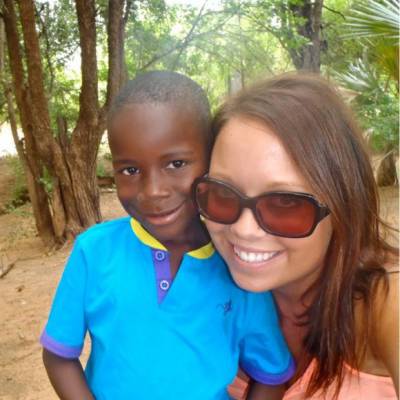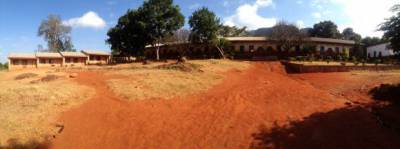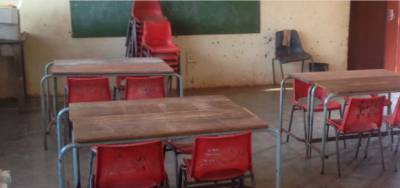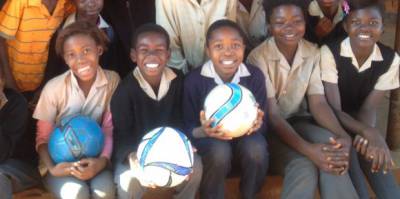Michelle Ramus, a Peace Corps Volunteer in South Africa (SA), has been waging an active campaign on Twitter to gather books in the US to populate a soon-to-be-launched library in SA, in the village where she is serving. It will be one of ALP’s first library projects in that country. We discovered her on Twitter and asked her to share her story in a guest blog for ALP. Read more about the preparations taking place in South Africa and how she involved her hometown in Indiana to donate books for children in her village.

My name is Michelle Ramus, and I began my service as a Peace Corps Volunteer in South Africa during July 2013, less than two months after finishing my Business Legal Studies degree at Indiana University. After teaching and tutoring English as a Second Language while attending university, I decided education would be the best path for my Peace Corps service. I live in a rural village in the Venda region of the Limpopo province. My neighbors still honor traditional leadership, eat traditional foods, and often wear traditional clothing. While they have a strong culture and a deep desire for education, the residents face many barriers to their access to education.

While electricity is fairly consistent, most of the roads are undeveloped, transportation is difficult, and access to water is challenging. Items that we consider necessities in America – such as toilet paper, sanitary pads, and school supplies – are luxuries that are not affordable to people in my village. Due to HIV/AIDS as well as parents having to find work in distant cities, many children become heads of household as early as fifth or six grade. About 38% of South Africans live in similar conditions in rural areas.

As an education volunteer, the core of my service involves teaching English and improving academic achievement at the upper primary school level. One component of that project goal is creating and improving usage of libraries in schools. My Peace Corps placement is at Tshaulu Primary School, a no-fee public school in a rural, underserved area. Our school receives a very small budget from the South African Department of Basic Education and a large amount of it goes towards operational costs such as electricity, firewood, and providing a daily meal for students. Outside of a few textbooks provided by the Department, the school does not have any books, nor does it have the resources to purchase books.

By taking part in the Nelson Mandela Day Libraries Project partnership between African Library Project and Breadline Africa, three teachers at the school and myself are hoping to change that severe lack of books. Books are crucial to education in terms of providing resources and improving literacy, but more than that, books allow kids to explore worlds and experiences completely unknown to them, filling their imaginations and helping them create dreams for themselves.

Many of the kids that I work with at Tshaulu Primary School have never had that opportunity – they do not realize that if they work hard they can go to university and build a career and life of their choosing. We want to create a library for these children not only to improve literacy and education, but also to empower the students to understand that they can create dreams to strive for and achieve.

“A reader lives a thousand lives before he dies. The man who never reads lives only one.” – George R.R. Martin
Since beginning my service here, I have met many hard-working people fighting poverty with innovative ideas, trying to provide their children with better education and more worldly experience than they had. And those are the people who are helping me make my service successful by their eagerness to take part in sustainable projects to better their community. The school has created a Library Committee consisting of three teachers and myself, and we have worked closely with the principal and other community stakeholders to move the project forward. We have set many project goals for our library: obtaining 2000 books and raising the money to ship them, building book shelves to hold the books, building or obtaining tables and chairs for library furniture, repairing a donation of non-working computers, making repairs on the leaking roof, and fully implementing a schedule of weekly class library visits and reading time. By taking part in the Nelson Mandela Day Libraries Project, we have also involved my hometown of Spencerville, Indiana, and others interested in the African Library Project to assist with collecting books and raising donations for shipping. We hope to have a soft opening of the library and computer room during September 2014, with a grand opening after the books from our African Library Project book drive arrive.

This will be the very first time each of the 225 students at our school will have ever had access to even one non-textbook book to read, much less 2000. It is incredibly easy to make a tax-deductible online donation towards the cost of shipping our 1000 African Library Project books by including our book drive code SA1-31, and by doing so, knowing that you are helping to make a tremendous difference in the lives of our students here.

